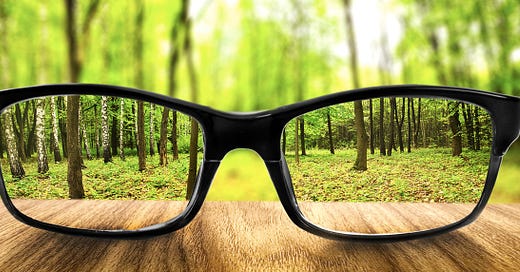This piece is the beginning of a collection of short essays on food, food systems, and rekindling relationships with the land around us. What does it mean to build an identity when our cultural identity is inevitably lost in an increasingly globalized, nomadic world? How do we find ways to create genuine identity and community?
The collection that this is a part of started nearly a decade ago, long before the Poor Proles Almanac was even an idea. I feel that the collection reflects how our evolution and relationships with the living and non-living world around us orbit around a fundamental question of what humanity means in a world where we’re increasingly alienated from the interdependencies which humans have existed for our entire existence. The challenge of finding place, purpose, and context for our existence has never been harder, and addressing it is a slow, painful, and iterative process bordering on obsessive.
With that said, I hope you enjoy this piece and would love to know if you’d want to read more from this collection.
To read the first piece, “On the Shoulders of Giants”, read here.
I remember the first day I came home, an awkward teenager with long, curly hair, and the first grips of stubble below my chin, wearing my new glasses and looking at the trees for the first time. I remember telling my mother I didn’t realize people could see the contortions of the branches from a distance, or see the outline of the leaves as they waved in the barometric differences within the canopy, regulating the temperature and air pressure differences above and below the trees. A squirrel jumped from one swaying branch to another. I walked towards the woods, saying nothing, not bothering to look down at my feet as they carried me into the forest behind our house. While I didn’t grow up in a rural area, my father was attached to the land and had chosen a lot that had been stripped of its topsoil for the construction of I-95 because it abutted protected lands, spanning hundreds of acres. Growing up, this was my playground.
What I think gets lost in conversations with newly bespeckled people is that we very much transition through a process of relearning to see. We have spent so much time being unable to see, unaware that our vision is materially different than anyone else’s, that we learn to understand depth, to trace the outlines of the world around us as though marked with thick black sharpie; one day the world is crisp and waiting for us to break through its infinite layers. In this way, we learn what it means to see the world as it is and not as we thought it was. We unequivocally accept this new world as we come to understand it and are eager to relearn everything we once thought we knew. Our assumptions are tossed aside, but they are not entirely useless, and they offer us a means to see the world through the eyes of another.
Despite this, I didn’t always wear my glasses, mostly because we were poor and I had the insurance freebies; you know the type— wiry and bulbous. Mix in an astigmatism, and they just weren’t very nice. Before glasses I had spent a lot of time in the forest behind my house; with new eyes, I found myself there whenever possible. Up close, mosses came to life, a dizzying array of complex geometric patterns interwebbed infinitely across the plane of a rock in the midst of a forest whose saplings stood as giants among the green carpets. Lychens were loose-fitting scabs on the landscape, dried and crusted, while the sinewy bark of black locusts stood as towers, spun as tight as a Chinese finger trap stretched to its breaking point.
Back at my grandfather’s, I picked at the spurs of the grapevines with the curiosity of a child again. It was then that I first saw the weight of time bare down on his hands, marked with deep lines and smooth, leathery skin the color of tobacco. The threads in his flannel were sinewy and tattered, and his eyes strained in a way I felt intimately acquainted. The innocuous shelves of the basement were no longer covered in collections of stuff, but articles each with a utility marking a time that was beginning to fade.
Keep reading with a 7-day free trial
Subscribe to The Poor Prole's Almanac: Restoration Agroecology to keep reading this post and get 7 days of free access to the full post archives.




